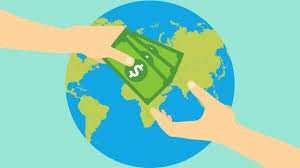Over 50 per cent of remittance to Nepal comes from Gulf countries

By Laxman Kafle, Kathmandu, Jan. 28: More than half of all the remittance coming to Nepal is sent by the Nepali migrant workers in Gulf countries.
The share of Gulf countries in the total remittance inflow to Nepal was 50.3 per cent in the first four months of the current fiscal year, according to Nepal Rastra Bank (NRB).
While Nepal received a total of Rs. 304.97 billion in remittance, the remittance from the Gulf countries amounted to Rs. 153.26 billion, an NRB report said.
Among the Gulf countries, the biggest amount of remittance was received from Qatar at Rs. 53.93 billion (17.7 per cent), followed by UAE at Rs. 40.87 billion (13.4 per cent) and Saudi Arabia at Rs. 38.15 billion (12.5 per cent).
Likewise, the country received Rs. 11.52 billion (3.8 per cent) from Kuwait and Rs. 8.79 billion (3.8 per cent) from Bahrain, the report said.
The trend of remittance inflow showed that the national economy could be affected any time in case of a problem in the Gulf countries, said Dr. Gunakar Bhatta, spokesperson at NRB.
"The share of remittance was 10.7 per cent of the GDP in 2001. It continuously rose and reached 29.6 per cent of GDP in 2015/16. Still in 2018/19, it amounted to 25 per cent of the GDP. So remittance has a major share in the national economy," he said.
However, the ratio of remittance to GDP has been declining in the recent years, indicating that economic activities are increasing in the country and job opportunities are being created, he said.
Nepal received Rs. 29.66 billion remittance from Malaysia during the first four months of the current fiscal year which is 9.7 per cent of the total remittance inflow.
Inflow of remittance from Malaysia, the major destination of Nepali migrant workers, has declined during the review period as no Nepali migrant worker was allowed to fly to Malaysia during the last fiscal year, said Dr. Bhatta.
The United States of America, Japan and South Korea are the major remittance sending nations after Gulf countries and Malaysia.
Nepal received remittance of Rs. 25.42 billion (8.3 per cent) from the USA, Rs. 22.87 billion (7.5 per cent) from Japan and Rs. 6.15 billion (2 per cent) from South Korea.
Likewise, the country received remittance of Rs. 5.04 billion (1.7 per cent) from the United Kingdom and Rs. 1.34 billion (0.4 per cent) from Australia.
India is the second largest remittance generating country for Nepal. Rs. 43.16 billion or 14.2 per cent of the total remittance was received from India during the review period, he said.
“We estimate that around 30 per cent remittance from India is received through informal channel,” he said.
Last fiscal year, Nepal received Rs. 128.5 billion of remittance from India. Out of the total, 90.5 per cent was received from the formal channel and Rs. 38 billion from informal channel.
Apart from India, Nepal received remittance of Rs. 750 billion from different countries in the last fiscal year.
According to the World Bank report ‘Remittance Prices Worldwide’, on average the cost of sending up to US$ 200 by Nepali workers is 4.3 per cent and up to US$ 500 it is 2.9 per cent.
The average cost of sending remittance to Nepal is comparatively less than global average, he said. But it is more expensive than in India and Bangladesh.
The high cost of sending remittance might be a challenge to bring in remittance through the formal channel, he said, adding that it would be possible to encourage migrant workers to send remittance through the formal channel by reducing the cost of sending it.
In the first four months of the current fiscal year, around 26100 migrant workers went to UAE, 15593 to Saudi Arabia, 12274 to Qatar and 9993 to Malaysia.
Nepalis go to work as migrant workers to 172 countries.
Nepal has opened up 110 countries for foreign jobs. However, Nepal has signed bilateral labour agreement with only eight countries -- Qatar, UAE, Japan, South Korea, Bahrain, Israel, Jordan and Malaysia.
Recent News

Do not make expressions casting dout on election: EC
14 Apr, 2022
CM Bhatta says may New Year 2079 BS inspire positive thinking
14 Apr, 2022
Three new cases, 44 recoveries in 24 hours
14 Apr, 2022
689 climbers of 84 teams so far acquire permits for climbing various peaks this spring season
14 Apr, 2022
How the rising cost of living crisis is impacting Nepal
14 Apr, 2022
US military confirms an interstellar meteor collided with Earth
14 Apr, 2022
Valneva Covid vaccine approved for use in UK
14 Apr, 2022
Chair Prachanda highlights need of unity among Maoist, Communist forces
14 Apr, 2022
Ranbir Kapoor and Alia Bhatt: Bollywood toasts star couple on wedding
14 Apr, 2022
President Bhandari confers decorations (Photo Feature)
14 Apr, 2022











